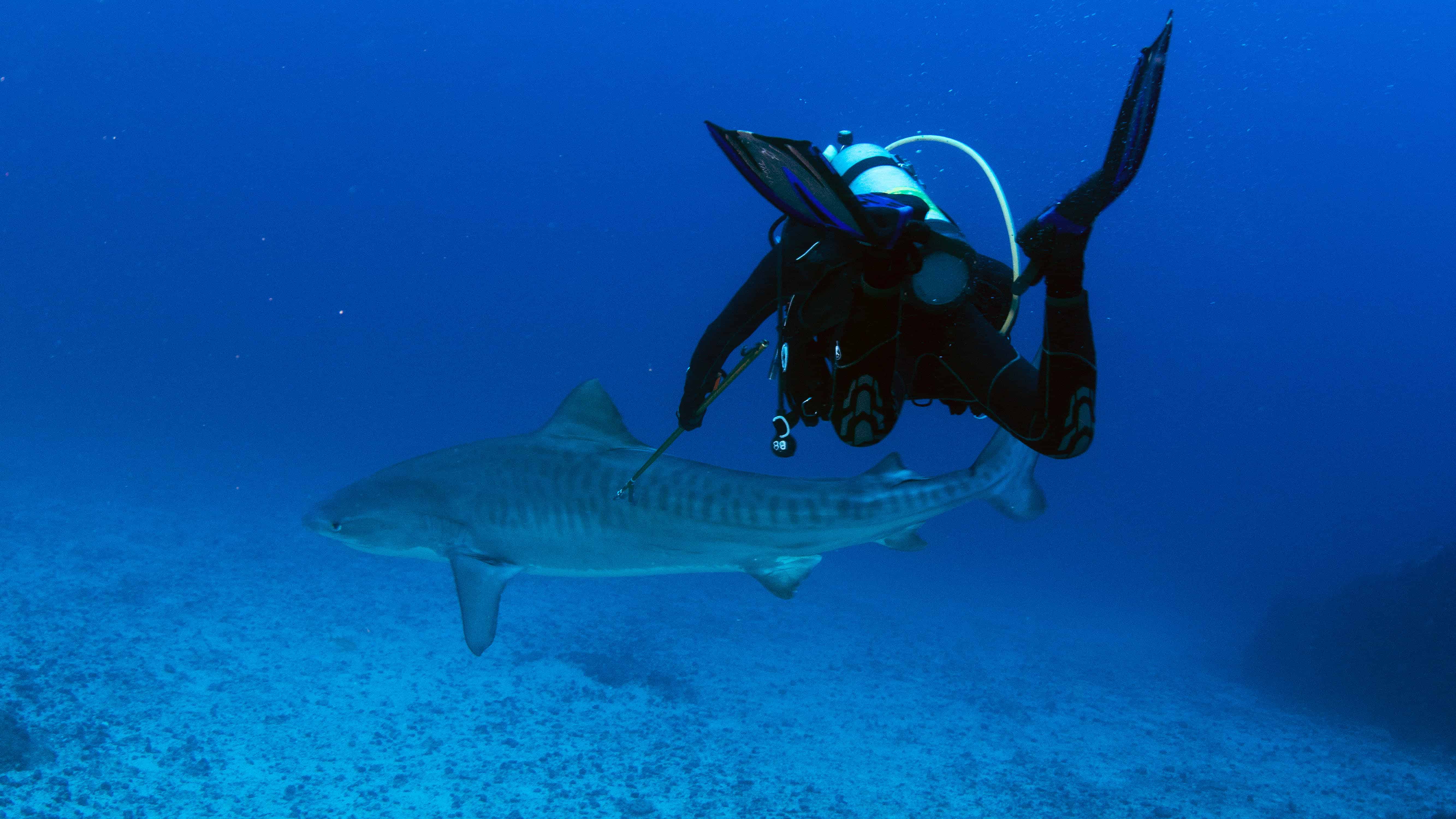In November 2017, a tiger shark killed a tourist from the United States and injured a Costa Rican guide during a dive off Cocos Island. Earlier this year, scientists tagged the shark in question, implanting a transmitter below its dorsal fin to monitor its movements and habitat use around Cocos Island National Park, the Costa Rican territory in the Eastern Tropical Pacific Ocean.
According to a press release from the Turtle Island Restoration Network (TIRN), the scientist identified the shark through its unique scars and its aggressive behavior toward divers. “It was showing no fear of the divers and was slowly and continuously circling us, closing its eyes, which is often a sign of a possible imminent attack,” Alfred Barroso, an underwater cameraman who was part of the expedition, said in the press release.
Todd Steiner, TIRN’s founder and executive director, charged the 14-foot female tiger shark and used a six-foot pole spear to place the transmitter. The device will allow scientists to monitor the shark for the next two years. “Todd charged the animal and tagged it from about a foot away, causing the shark to swim off and giving us time to get safely back on our skiff,” Barroso said.
The Economist published footage of the dramatic moment as part of a documentary highlighting shark research near Cocos Island. You can watch the full video below; the shark tagging starts at about the one-minute mark:
The deadly 2017 attack was the first of its kind at Cocos Island despite thousands of similar dives there over the past two decades, according to Costa Rica’s Environment Ministry.
TIRN says it has conducted more than two dozen expeditions in a partnership with the Costa Rica-based Rescue Center for Endangered Marine Species “to set the basis for better protections at Cocos Island and for a protected swimway to save sharks, sea turtles, and other migratory animals as they swim throughout the region.”
TIRN says its research also helps establish protections for marine wildlife impacted by fishing operations.
“I love Cocos Island, and dive fees revenue from recreational divers is critically important to sustain the conservation activities at this National Park,” Steiner said. “We need to better understand this shark’s habitat use in order to keep divers and wildlife safe, and acoustic telemetry is one of the best and most reliable tools we can use.”






